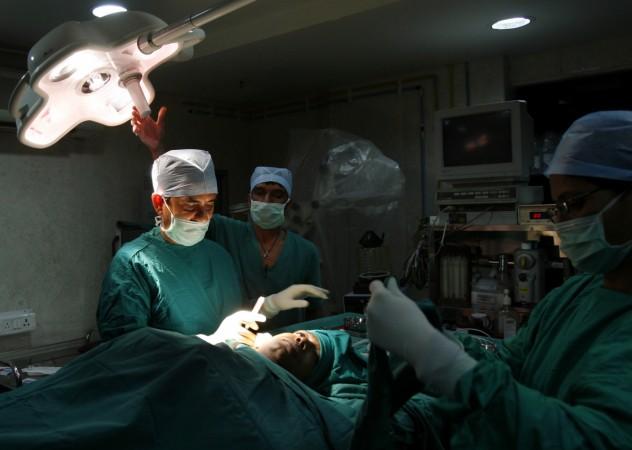
The robot revolution draws ever near. After beating humans in board and bar games, they're moving into the operation theatre. STAR, or Smart Tissue Autonomous Robot, is a robot that successfully performed soft tissue surgery -- all by itself.
STAR is the brainchild of the scientists at the Children's National Health System in Washington D.C. and the surgical bot is the first in the world to successfully perform soft tissue surgery on a live subject autonomously. The subject was an anesthetised pig and STAR managed to stitch together two severed pieces of intestine, Polular Mechanics reported.
It's not uncommon to find robots in operation theatres. Surgeons use them all the time to perform complicated procedures, but what makes STAR different is that all the other robots that have been used so far have all been operated by surgeons.
"Current robotic surgery is 'teleoperated', [meaning that] every step and every movement of the robot, is directed by the surgeon," Axel Krieger, a robotics expert with the team at Children's National Health System told Pop Mech. "Our innovation is really to make this more autonomous, so that you don't have to direct every motion."
The procedure performed by STAR is called intestinal anastomosis, which is typically performed after a section of intestine has been removed, and, according to Pop Mech, the robot outperformed human surgeons on virtually every parameter, except for how much time it took to complete the procedure. A human surgeon could apparently complete the surgery in one third of the time STAR took, but the level of precision with which STAR placed the stitches and how taut the joints were far exceeded the capabilities of a human surgeon.
"We can run the robot really, really fast. But in this study, we really focused on the outcomes, so we didn't run it as fast as we could," Krieger was quoted as saying.

















